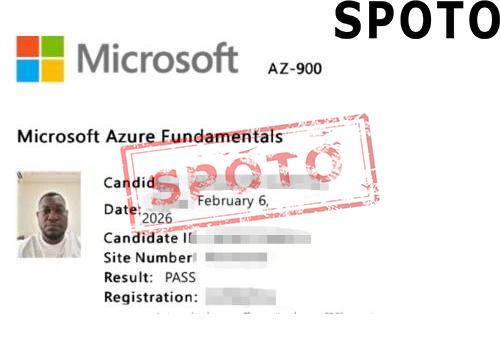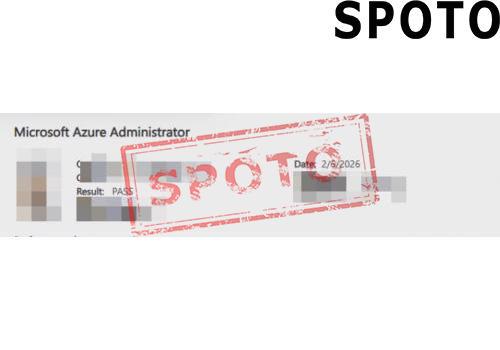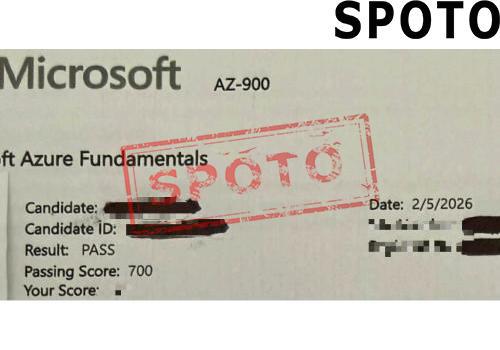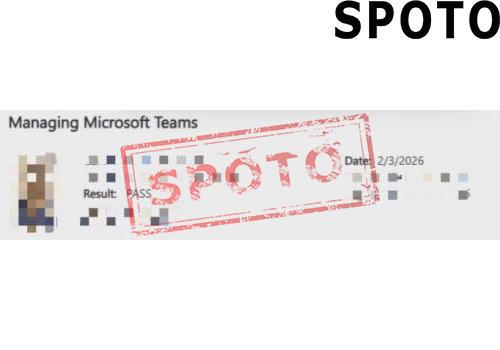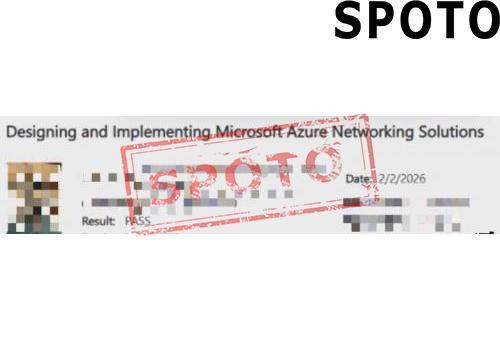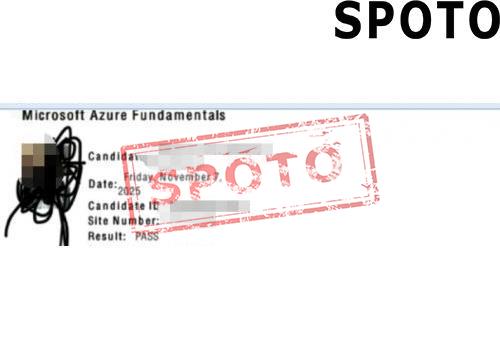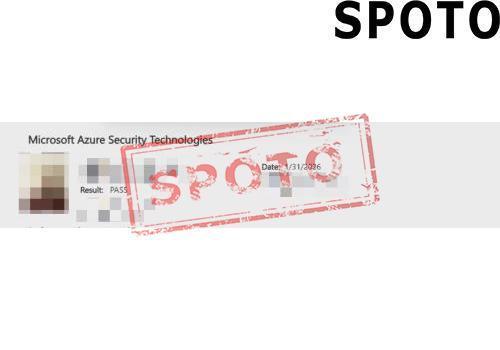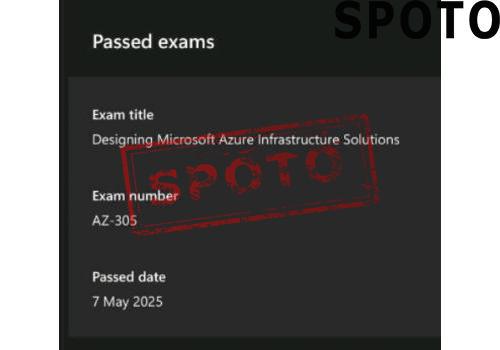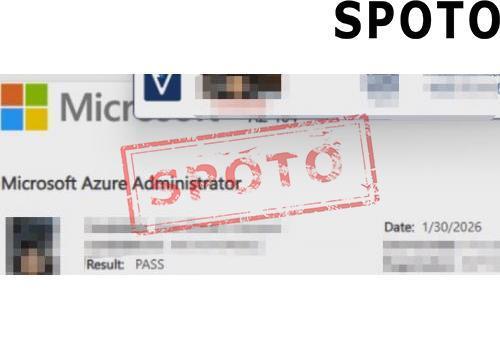
Table of Contents
As businesses of all sizes migrate to the cloud, demand for cloud skills continues to surge. According to Gartner, global cloud spending is expected to reach $723 billion by 2026, with AWS and Azure leading the market. Entry-level cloud certifications not only enhance your technical skills but also strengthen your resume, giving you an edge in the job market.
1. What are Azure Certifications?
Microsoft Azure Certifications are a series of professional qualifications officially offered by Microsoft that validate IT professionals' technical proficiency and practical experience on the Azure cloud platform. By earning an Azure Certification, holders demonstrate mastery of core cloud computing concepts, Azure service configuration and management, and expertise in cloud application development, cloud security, data analytics, and artificial intelligence.
2. AWS and Azure Certifications: Overview
For beginners, the two most popular certification options are the AWS Certified Cloud Practitioner (CLF-C02) and Microsoft Azure Fundamentals (AZ-900). Both are designed to validate foundational cloud knowledge, but they cater to slightly different audiences and career goals.
The AWS Certified Cloud Practitioner is an entry-level certification that covers AWS core services, security, and pricing. This certification is ideal for beginners seeking to understand AWS services and the fundamentals of the cloud. It is also popular among those pursuing roles such as Cloud Support Associate or AWS Sales.
Azure Fundamentals is for those new to Azure or cloud computing. It covers Azure's core concepts, services, and pricing models. This certification is best suited for beginners planning to use Microsoft technologies or for enterprises heavily relying on Azure. The certification exam typically combines theoretical knowledge testing with practical exercises, helping learners comprehensively hone their skills in designing, deploying, managing, and optimizing cloud platforms. With the increasing importance of cloud computing in enterprise digital transformation, Azure certifications have become highly recognized professional qualifications within the industry, helping holders improve their career competitiveness and salary levels.
3. Which certification is most popular?
AWS remains the most widely used cloud platform, holding approximately 32% of the market share by early 2026. Startups and technology companies particularly value AWS skills due to its scalability and broad service offerings. AWS Cloud Practitioner: Primarily multiple-choice questions, this is straightforward if you've already learned AWS fundamentals.
Azure is gaining popularity, especially among large enterprises and government agencies, where it holds approximately 25% of the market share. Organizations already using Microsoft products generally prefer professionals with Azure certifications. Azure Fundamentals: A mix of multiple-choice, drag-and-drop, and scenario-based questions. The variety is slightly greater, but masterable with practice.
4. AWS vs. Azure: Which is the right fit for you in 2026?
Choosing between AWS and Azure certifications largely depends on your career goals and the job market in your region. When to choose AWS: You're aiming to work at a tech startup or a company that has invested heavily in AWS. You prefer a certification that's widely recognized across industries. And you plan to pursue AWS certifications, such as the AWS Solutions Architect - Associate (SAA-C02). When to choose Azure: Your target employer is an enterprise within the Microsoft ecosystem. You'd prefer to specialize in Azure's cloud and data services. And you plan to be promoted to Azure Administrator Assistant (AZ-104).
5. What side jobs can you pursue with this certification?
Azure Certification: Cloud Platform Consulting and Advisory Services (provides consulting services such as cloud architecture design, migration solutions, security strategies, and cost optimization to small and medium-sized enterprises and individual customers).
Cloud Platform Operations and Management Outsourcer (provides daily operations, monitoring, troubleshooting, and automation script development for enterprises, either remotely or on-site).
Cloud Solutions Developer (develops customized cloud applications, automation tools, data analytics, or AI services to help customers achieve digital transformation).
Online Course and Technical Trainer (produces Azure-related instructional videos, live courses, or hosts in-person training sessions, sharing practical experience and exam preparation tips).
Freelance Cloud Engineer (takes on short-term Azure training through freelancing platforms such as Upwork and Freelancer). (Related projects, flexible schedules available.)
Generally speaking, entry-level Azure-related side jobs, such as basic cloud environment configuration, simple scripting, or operations support, earn between 100 and 300 RMB per hour. Intermediate-level cloud architecture design, automated solution development, or security hardening projects can earn between 5,000 and 15,000 RMB per month. Senior cloud consultants or custom cloud application developers, especially those providing enterprise-wide migration or optimization solutions, can easily earn tens of thousands of RMB per project, or even over 100,000 RMB.
Case Study: Effective Side Hustles for Azure Certified Certified Individuals
George, an IT engineer with five years of cloud computing experience, recently earned the Microsoft Azure Administrator Associate (AZ-104) certification. To further enhance his professional competitiveness, he decided to leverage his Azure certification skills to develop a side business and supplement his income.
George spends 1.5 hours every evening learning new cloud platform technologies and takes on private work on weekends, providing Azure environment setup and operations support to small and medium-sized enterprises. He takes on projects through online freelancing platforms, helping clients design basic cloud architectures, deploy virtual machines, and write automated scripts.
George also offers live online courses on Azure introductory courses, sharing exam preparation tips and practical techniques, attracting hundreds of participants. Thanks to his professional lectures and practical examples, his course ratings have continued to rise, and his income has gradually stabilized.
George's side hustle currently earns him between 8,000 and 15,000 yuan per month, easing his financial burden while also building valuable client relationships and teaching experience. In the future, he plans to obtain the higher-level Azure Solutions Architect Expert certification, gradually turning his side hustle into a long-term career and becoming a cloud computing expert with both technical and consulting skills.
